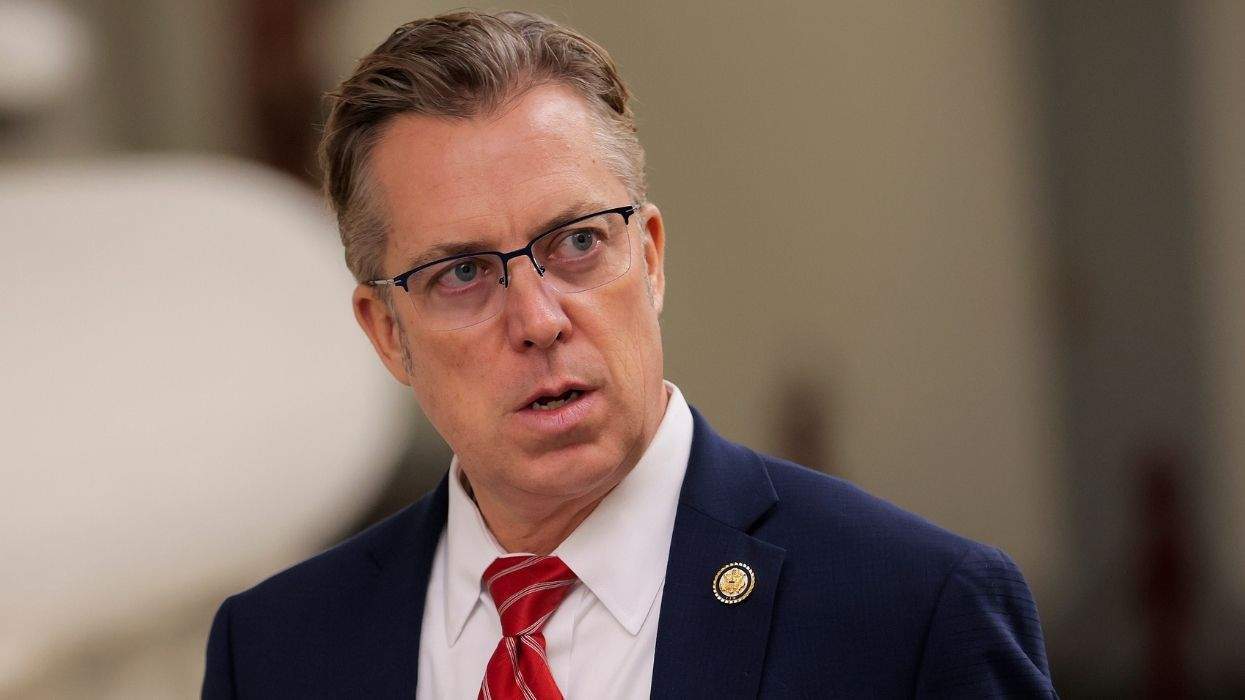The U.S. Department of Health and Human Services has largely rescinded a rule it issued during Donald Trump’s presidency that activists say would have allowed widespread discrimination in health care — and replaced it with a rule that civil rights advocates call much more balanced.
The Trump-era rule, titled “Protecting Statutory Conscience Rights in Health Care,” would have let health care providers opt out of procedures to which they object on religious or moral grounds, even in cases of emergency or if their involvement in the procedures is tangential. It could have jeopardized access to gender-affirming care, HIV prevention and treatment, abortion, contraception, and more. It was issued in 2019 but never went into effect, as three federal courts blocked it.
The new rule, titled “Safeguarding the Rights of Conscience as Protected by Federal Statutes,” was issued Tuesday and goes into effect March 11. It strikes a balance between accommodating health care workers’ conscientious objections and assuring that patients can access care without discrimination, says Julianna Gonen, federal policy director at the National Center for Lesbian Rights.
“The main difference is that the Trump rule included a ‘definitions’ section that would have vastly expanded the range of persons who could claim a religious or moral objection and refuse to perform their jobs — anyone from a scheduler to an operating room technician to an ambulance driver (it accomplished this via the definition of ‘assist in the performance of’),” she tells The Advocate via email. “It also condoned withholding information from patients via the definition of ‘referral.’ … The new rule eliminates that section entirely. So while it wouldn’t necessarily appear that a change in ‘definitions’ would be that significant, that section in the old rule did a lot of work, and that’s probably the most concrete thing that’s different.”
“Overall, the Trump rule focused exclusively on the right of providers (or anyone with a slight connection to health care) to refuse that care, with no mention of the adverse effects on patients and on patients’ right to receive care,” she continues. “The Biden rule explicitly acknowledges that while conscience rights are important and should be protected, we can do that while also protecting patients.”
Lambda Legal, which represented plaintiffs in one of the lawsuits against the Trump administration’s rule, is praising the change as well. “While the earlier discriminatory and dangerous rule has been blocked … it nonetheless has loomed ominously over both health care providers and potential patients, representing the very real threat of blockages of medical care delivery when patients are most in need,” Lambda Legal Chief Legal Officer Jennifer C. Pizer said in a press release. “We are grateful that HHS has removed from the books the prior rule’s explicit invitation to discriminate against pregnant people, anyone in need of gender-affirming medical care, and LGBTQ+ patients in general, regardless of their medical needs. No patient — no matter their religion, sex, race, gender identity, or sexual orientation — should fear being denied the medical care they need based on other people’s religious beliefs.”
Lambda Legal, Americans United for Separation of Church and State, the Center for Reproductive Rights, and the County of Santa Clara filed a lawsuit challenging the Trump-era rule in U.S. District Court in California on behalf of several health care providers and medical associations. In a November 2019 ruling, Judge William Alsup pronounced the rule “saturated with error.”
The rule would have put health care providers at risk of losing federal funding “if they did not grant employees carte blanche to deny services,” Lambda Legal’s press release states. “Because the rule was confusing and infeasible to implement, many health care facilities could have been forced to eliminate services such as reproductive and LGBTQ care, leaving millions across the United States without access to critical health care. “
Federal judges in New York and Washington State issued rulings against the Trump-era document as well.
The new rule “is another promise delivered by President Biden, working to strengthen conscience protections and advance health care, free from discrimination,” HHS Secretary Xavier Becerra said in a release from his department. “The Final Rule clarifies protections for people with religious or moral objections while also ensuring access to care for all in keeping with the law.”















Charlie Kirk DID say stoning gay people was the 'perfect law' — and these other heinous quotes
These are some of his worst comments about LGBTQ+ people made by Charlie Kirk.